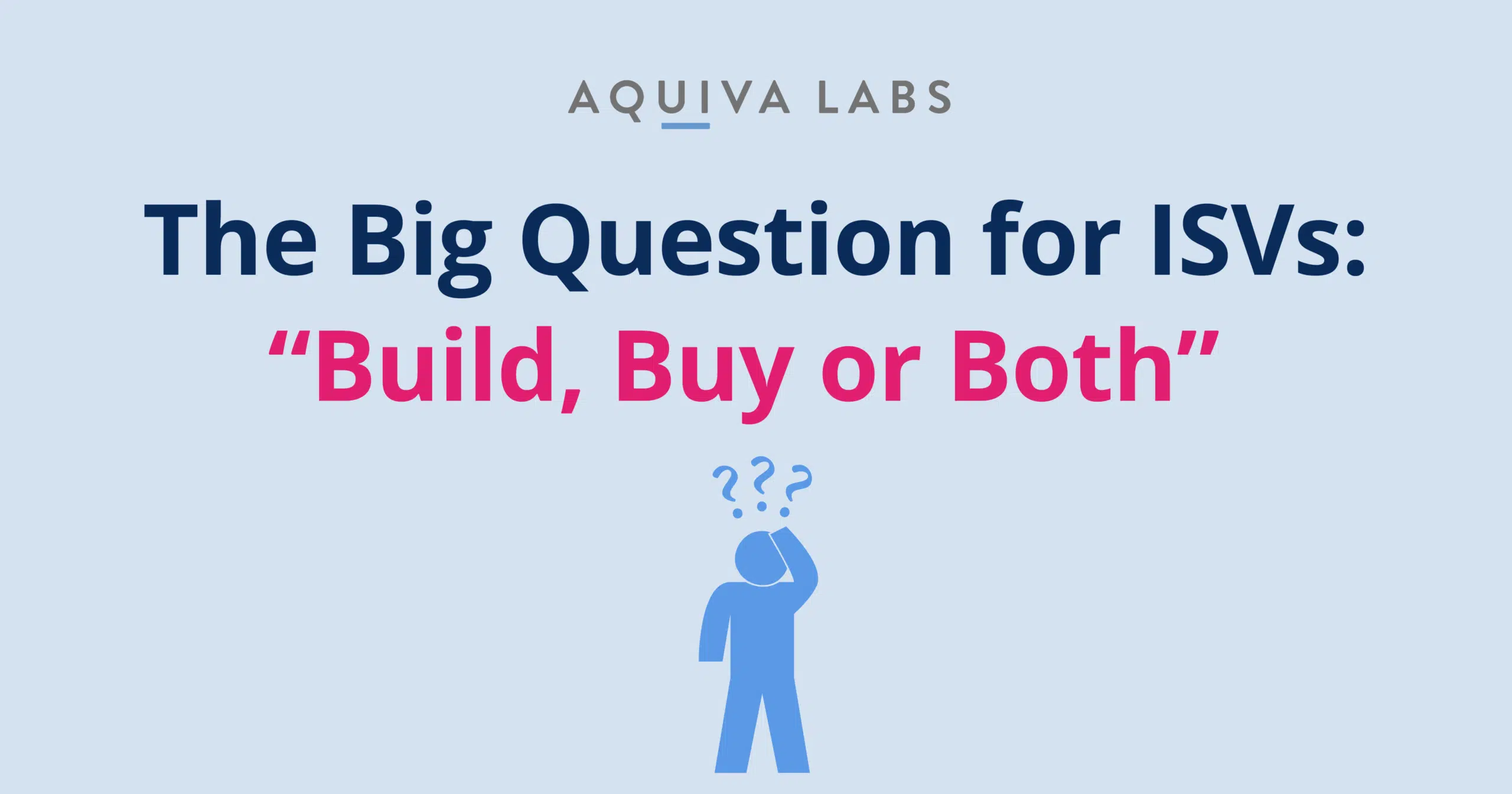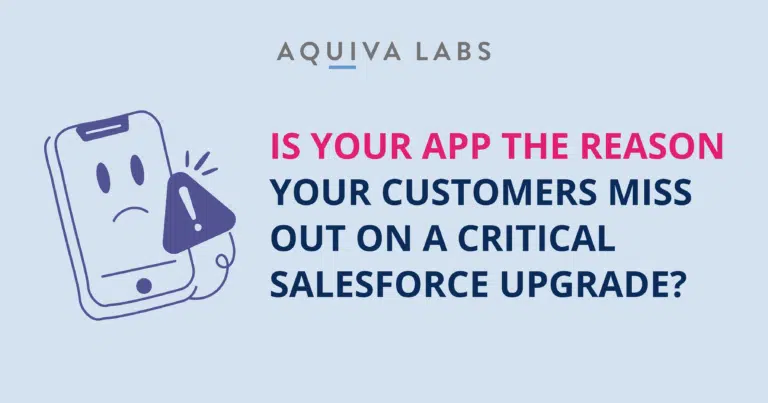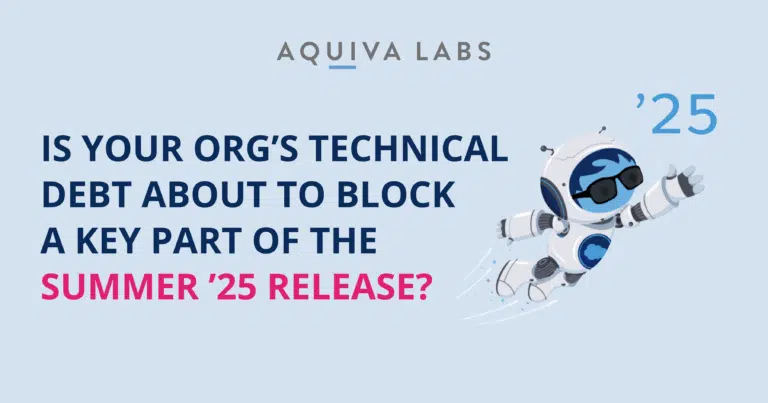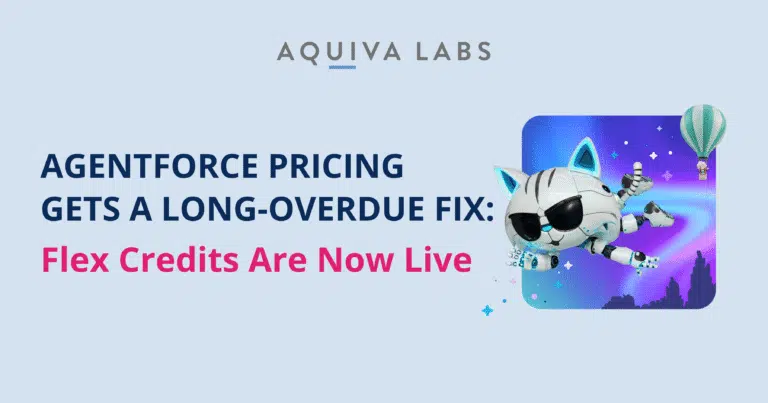Salesforce Data Cloud is a robust platform designed to unify, analyze, and activate customer data.
Having been launched in 2020, it is a fairly new platform. It is Salesforce’s fastest-growing product, which ended the year with a staggering $400M in ARR, registering a 90% Y/Y growth.
It is perfect for ISVs (Independent Software Vendor) as it offers a comprehensive solution for their Applications to manage vast amounts of customer data across various sources and deliver personalized experiences.
Though experiencing hyper-growth, it is still fairly new so not many people have worked with it, making it challenging to gain real experience and opinions. My goal is to share my experience from building AppExchange Apps integrated with Salesforce Data Cloud and provide valuable insights and guidance.
Why should you consider building a Salesforce Data Cloud app?
Let’s start with use cases. If you already have an App in the AppExchange, should you consider adding Data Cloud to your product roadmap? There are three main use cases:
- Extracting Data from Data Cloud: Your customers are already using Data Cloud, storing customer data, segments, and more. If you want to extract this data to process it on your external platform, Data Cloud has robust out-of-the-box technology to help you extract data.
- Ingesting Data into Data Cloud: If you have data stored outside the Salesforce ecosystem, tracking specific assets is challenging. By bringing this data into Data Cloud, your customers can obtain comprehensive visibility. To simplify integration without extensive customization, you can build an App that brings data into Data Cloud atop their standard Salesforce application.
- Creating Extension Packages: These packages allow users to easily install plugins into Data Cloud interact with Salesforce data, custom objects, and fields. Previously, Data Cloud only supported first-generation packages, but since April 2024, it now supports second-generation managed packages, removing a significant blocker.
Mastering Data Cloud - Is it the right thing to do?
So the next big question for many ISVs is, “Should we invest in our team’s internal Data Cloud expertise?”
To address this, let’s discuss the ‘Build vs. Buy’ framework for Salesforce Engineering expertise, and also introduce the Build-to-Buy approach.
- Build – This involves building your internal team’s knowledge and expertise of Data Cloud. This option might be preferred when a company has a clear product vision and needs high control over delivery. Additionally, the company has a long-term commitment to Data Cloud and wants the internal team to build core competencies to create unique, strategic solutions.
- Buy – This involves partnering with a Salesforce PDO (Product Development Outsourcer) who already has deep knowledge, plus experience launching and maintaining Apps with Data Cloud. This option is often a smart move for companies looking to expand their reach, grow more efficiently, and accelerate time to market, all at a better price point. Partnering will involve collaborating with partner companies to fill gaps in capabilities.
- Buy-to-Build – With this strategy a company initially partners with external experts to gain essential knowledge, skills, and support for a new technology, with the intention of gradually developing the capabilities to manage and expand these functions internally. This approach combines the immediate advantages of outsourcing with a long-term plan to internalize and enhance core competencies.
Relative to deciding whether to Build, Buy, or Buy-to-Build Data Cloud engineering expertise, ISVs should focus on two critical factors: time to market speed (accelerated or measured) and number of projects they expect to develop (1-3 projects or ongoing). These factors will impact the cost (high to low) and level of control (high to low) components. As companies evaluate the factors and components, it is important to be realistic in your internal team’s ability to develop deep expertise in Data Cloud, because it is tied to the overall costs and speed to market.
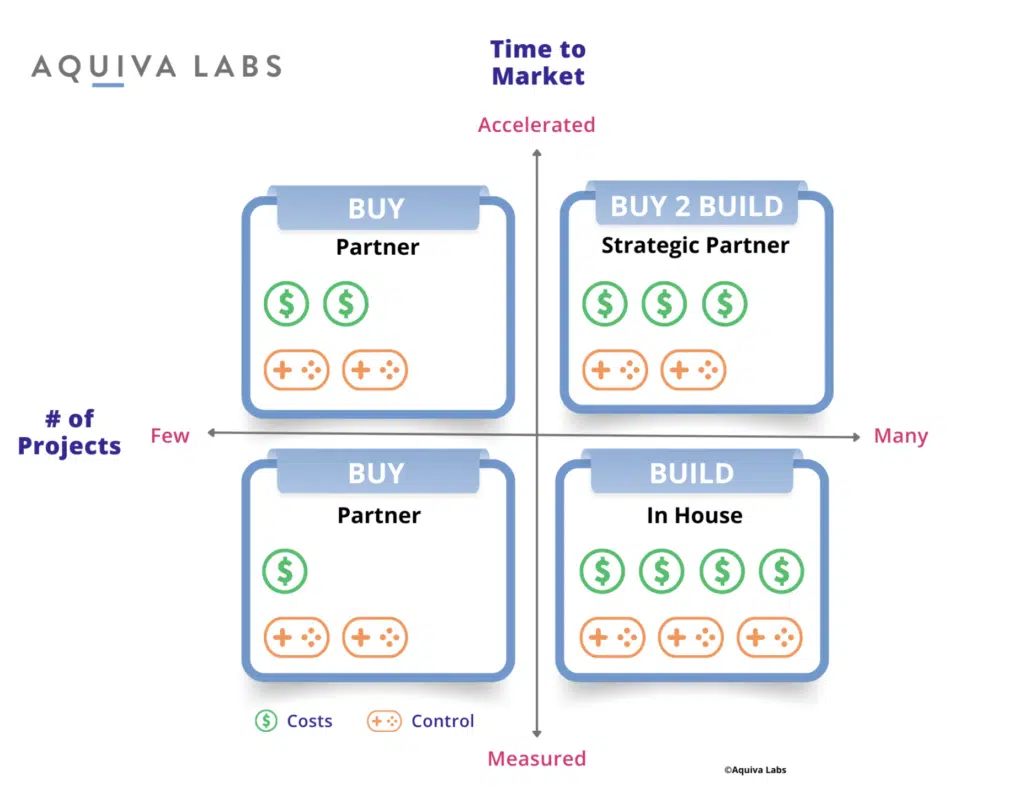
Let’s review the pros and cons of each option.
The Build approach is ideal for organizations with long-term commitments to Salesforce Data Cloud. It offers complete control over intellectual property and ensures alignment with company culture but demands higher upfront costs, specialized skills, and results in a longer time to market.
The Buy approach is better suited for companies with fewer projects (1-3). It accelerates speed to market, provides access to specialized expertise, and is cost-effective, though it offers less control and depends on external partners.
The Buy-to-Build approach combines the strengths of both, allowing for a balanced integration of outsourcing speed and internal development control. This method helps mitigate risks associated with a lack of internal expertise and enables the gradual build-up of internal competencies. However, it introduces complexity as roles may shift between projects, potentially affecting accountability.
Ultimately, choosing between these approaches—Build, Buy, or Buy-to-Build—depends on your organization’s goals, project scope, and resources. For ISVs, deciding whether to build internal expertise or partner with experienced developers hinges on factors like time to market, project scope, and resource allocation.
The right choice will enable you to leverage Salesforce Data Cloud effectively and align with your long-term strategy. When considering a partner, ensure they have experience with Data Cloud, especially with published AppExchange apps.
If you’re thinking about partnering, it’s essential to verify whether your PDO has already published some AppExchange apps for Data Cloud.
If you’re thinking about partnering, it’s essential to verify whether your PDO has already published some AppExchange apps for Data Cloud.
And, by the way . . . Aquiva Labs has recently rolled out our third Data Cloud app on AppExchange.
Reach out to us below!
Written by:

Jakub Stefaniak
VP, Technology Strategy and Innovation

